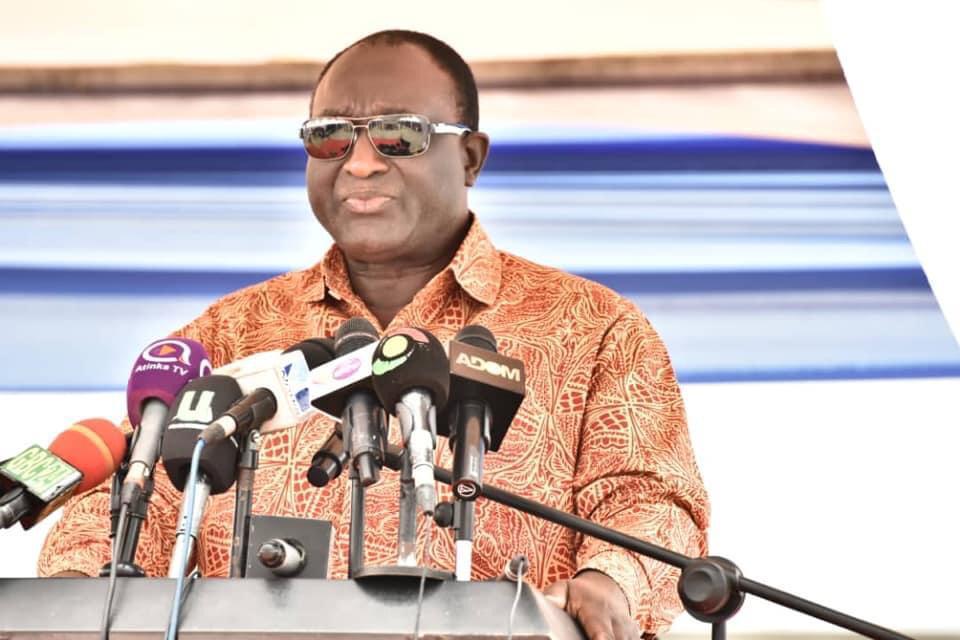
Trade Minister Alan Kyerematen has said that the country’s best chance to quickly recover from ravages of the coronavirus pandemic lies in how it takes full advantage of the African Continental Free Trade Area (AfCFTA) agreement, as it gives the private sector the best opportunity to expand their frontiers.
Speaking at the post-budget analysis organized by auditing firm Deloitte in Accra, Mr. Kyerematen said considering the destruction caused by the coronavirus pandemic and its impact on the local economy, there is need for an industrial revolution that prioritises exports to bring the economy back to life – and the AfCFTA offers such a great opportunity.
“Notwithstanding challenges posed by the COVID-19 pandemic, Ghanaian businesses have the opportunity to fast-track recovery by taking full advantage of the AfCFTA. The Agreement is expected to provide opportunities for businesses in Ghana to export goods to other African countries duty-free and quota-free without barriers or challenges.
“It is also worth noting that under the Protocol on Trade in Services, which was negotiated as part of the AfCFTA Agreement, Ghanaian businesses can now exploit fully opportunities in Africa in five service sectors: namely transport, communication, financial services, tourism and business services.
“The AfCFTA is expected to boost Ghanaian exports, stimulate investments and innovation, foster structural transformation, improve food security, enhance economic growth and export diversification, and above all provide fresh impetus and dynamism for the economic integration of Ghana into the African market.
“There are many benefits that Ghana will derive from effective implementation of the AfCFTA, including better harmonisation and coordination of trade between Ghana and other African countries; adding value to Ghana’s abundant natural resources; and promoting economic diversification,” he said.
The trade pact connects 1.3 billion people across 55 countries with a combined GDP valued at US$3.4trillion. AfCFTA will significantly boost African trade, particularly intraregional trade in manufacturing. The volume of total exports is expected to increase by almost 29 percent by 2035 relative to the baseline. Intracontinental exports will also increase by over 81 percent, while exports to non-African countries will rise by 19 percent.
With regard to preparations by government to take advantage of this prospect, the Trade Minister expounded on programmes and structures put in place by government to boost production capacity of businesses and facilitate exports – to ensure that the continental trade pact works to the benefit of businesses in the country and, to a large extent, the economy.
“Government is keenly aware that these benefits from the AfCFTA will not accrue automatically to businesses in Ghana. It will require a comprehensive programme of support for Ghanaian businesses in areas including access to finance, enhancing industrial productive capacity, trade facilitation, trade-related infrastructure, and facilitating access to market information.
“A number of programme interventions have already been introduced to support companies in the areas listed above. These include the financial stimulus package for local industries being implemented with the support of participating financial institutions; banking sector reforms; the One District, One Factory (1D1F) initiative; the establishment of industrial parks and special economic zones; SME development; Tema and Takoradi port expansion projects; construction and rehabilitation of road networks; railway development; and the introduction of a new Trade Facilitation and Customs Management System (ICUMS/UNIPASS).
“Government will continue to prioritise support to the private sector and entrepreneurship to create jobs and improve incomes by making Ghana a hub for commerce, financial services and manufacturing to take full advantage of the AfCFTA,” he added.
Source : thebftonline.com
























